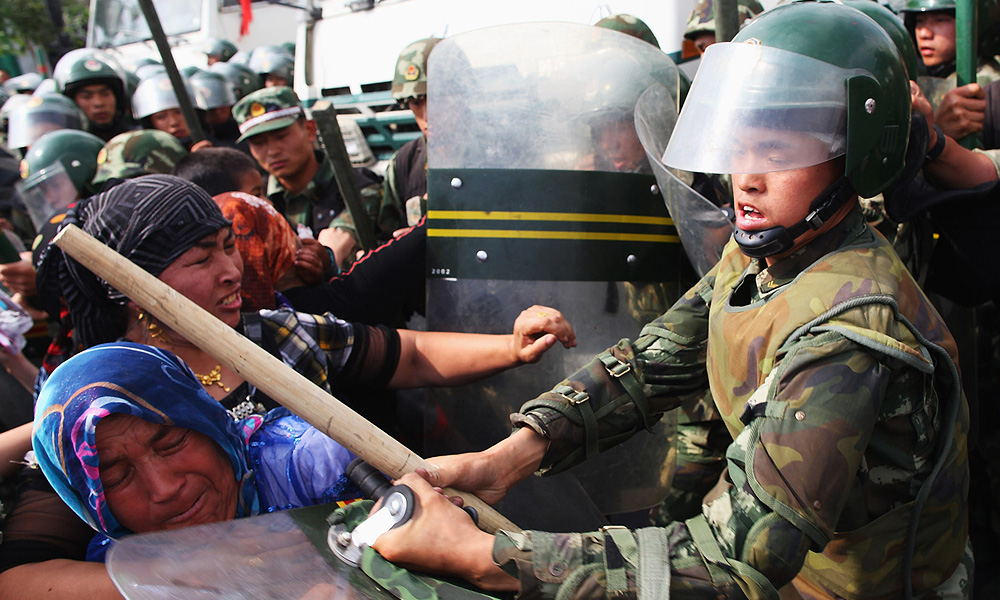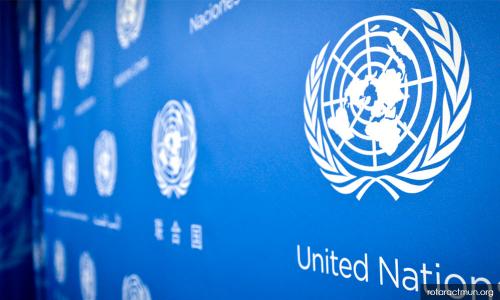US, Britain, others to push China to stop detention of Uyghurs
The United States, Britain, Germany and more than a dozen other countries will push China at the United Nations today stop the detention of ethnic Uyghurs and other Muslims, said diplomats, a move likely to anger Beijing as it negotiates a trade deal with Washington.
In a joint statement seen by Reuters and due to be made to the 193-member UN General Assembly’s human rights committee, the signers will also call on all countries not to send refugees or asylum seekers back to a place where they face persecution.
China has been widely condemned for setting up complexes in remote Xinjiang that it describes as “vocational training centres” to stamp out extremism and give people new skills. The United Nations says at least one million ethnic Uyghurs and other Muslims have been detained.
The statement is due to be made during a General Assembly rights committee meeting today on the elimination of racial discrimination.
Diplomats said other countries that back the statement include: Albania, Australia, Belgium, Canada, Denmark, Estonia, Finland, France, Iceland, Ireland, Japan, Latvia, Liechtenstein, Lithuania, Luxembourg, The Netherlands, New Zealand, Norway and Sweden.
“We call on the Chinese government to uphold its national laws and international obligations and commitments to respect human rights, including freedom of religion or belief, in Xinjiang and across China,” the statement reads.
It pushes China to “urgently” implement recommendations by independent UN experts on the situation in Xinjiang, “including by refraining from the arbitrary detention of Uyghurs and members of other Muslim communities”.
“We express concern regarding Chinese authorities harassment and intimidation of civil society representatives who raise concerns about Xinjiang in UN fora,” the statement reads.

The statement follows a similar move in July when 22 states at the UN Human Rights Council wrote a letter calling on China to halt its mass detention. In response, Saudi Arabia, Russia and more than 30 other countries wrote a rival letter commending what they called China’s remarkable rights achievements.
When asked by Reuters last month if US criticism of China’s policies on Xinjiang and Hong Kong political protests could affect trade talks, China’s state councillor and foreign minister, Wang Yi, said: “We hope trade talks can have a loose and good foreign environment.”
US and Chinese negotiators are working to complete the text of an interim trade agreement for US President Donald Trump and Chinese President Xi Jinping to sign at an Asia-Pacific Economic Cooperation summit in Chile on Nov 16-17.
A US administration official said last night that it might not be completed in time for signing in Chile, but that does not mean the accord is falling apart.
China dislikes public criticism and met with some foreign envoys ahead of the start of the latest session of the U.N. General Assembly in New York, which began last month. Chinese human rights academicians also defended Beijing’s policies in Xinjiang, Tibet and Hong Kong during a briefing with reporters in New York at China’s UN mission last week.
In response to criticism last week by US Vice-President Mike Pence of China’s approach to Xinjiang and Hong Kong, the Chinese Foreign Ministry said Washington would do better to look at its own domestic problems like gun violence. Speaking in Beijing, Chinese Foreign Ministry spokesperson Hua Chunying said Pence’s speech was full of lies and prejudice, and that it had made China “strongly indignant”.
At an event on the sidelines of the annual UN gathering of world leaders, the United States led more than 30 countries last month in condemning what it called China’s “horrific campaign of repression” against Muslims in Xinjiang. China denounced the event.
- Reuters
RM12.50 / month
- Unlimited access to award-winning journalism
- Comment and share your opinions on all our articles
- Gift interesting stories to your friends
- Tax deductable

